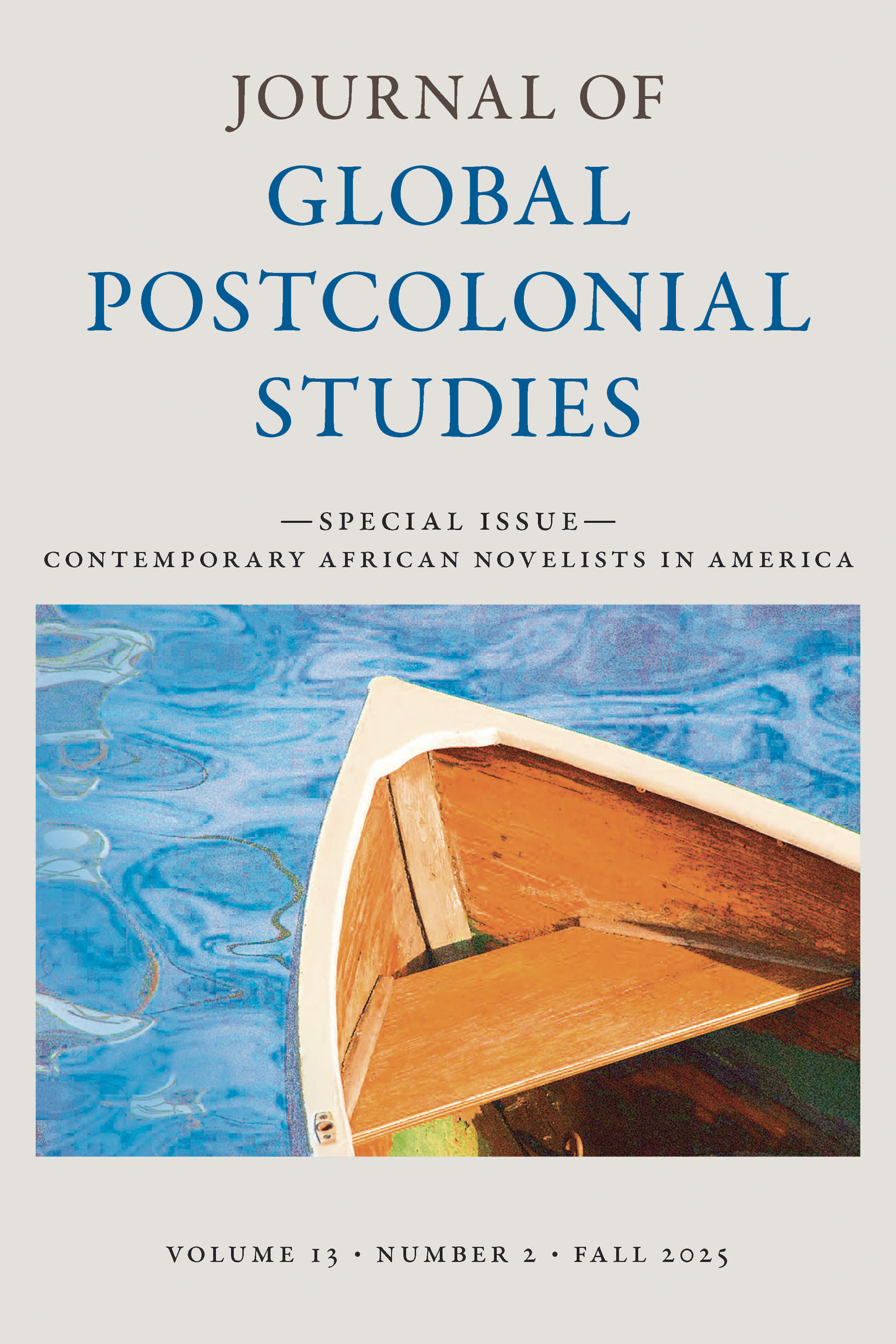Introduction
Main Article Content
Abstract
This special issue of the renamed Journal of Global Postcolonial Studies builds on an earlier (2013) special issue’s investigations into new writing from the continent of Africa. The new issue focuses specifically on African writers in the United States -- whether the writers were born in the US, attended school in the US, or are currently based in the US. The introduction sets out some of the demographic factors -- push and pull factors in African migration to the US -- and draws attention to the importance of American MFA programs not only in attracting would-be writers to US universities but also in setting up networks with agents and publishers. Two of the most important themes in the three articles, three practitioner essays, interview, and review essay that make up the issue pertain to the impact of online publishing and networking, and the relationship between Africans and African Americans. In relation to the latter theme, while it would be reassuring to think that the current boom in US publishing of African writers represents a wider American interest in all things African, the success of these novels may also have to do with the fact that so many are actually set in the United States, whether wholly or in part. The recurrent theme of immigration to the US gives many NGANA novels direct – and salutary – relevance to US readers, non-African ones as well as fellow non-resident Africans. As Black outsiders in the United States, African immigrants have a particularly acute insight into the way race and racism affect daily life in this country, and the way racial discrimination intersects with other forms of prejudice.
The work of African writers in the US represents an extraordinarily rich strand of contemporary global postcolonial expression. Maybe, too, it can offer a productive challenge to those of us who teach African literature in the US to see our pedagogy, as Vincent Ogoti suggests, as part of a practice of “un-scarring: of piecing together the full, messy story” of Africans in the Americas so that “the wound itself becomes a source of collective understanding rather than mere spectacle.”

